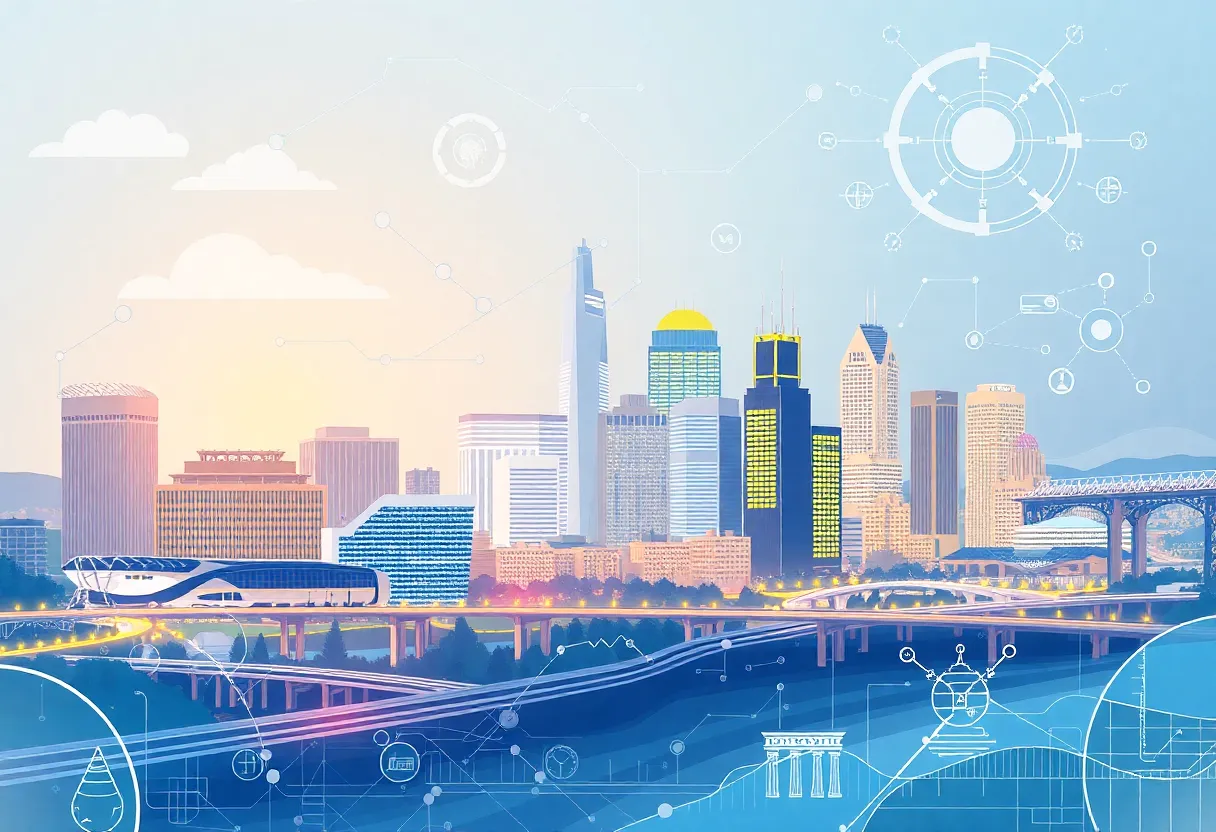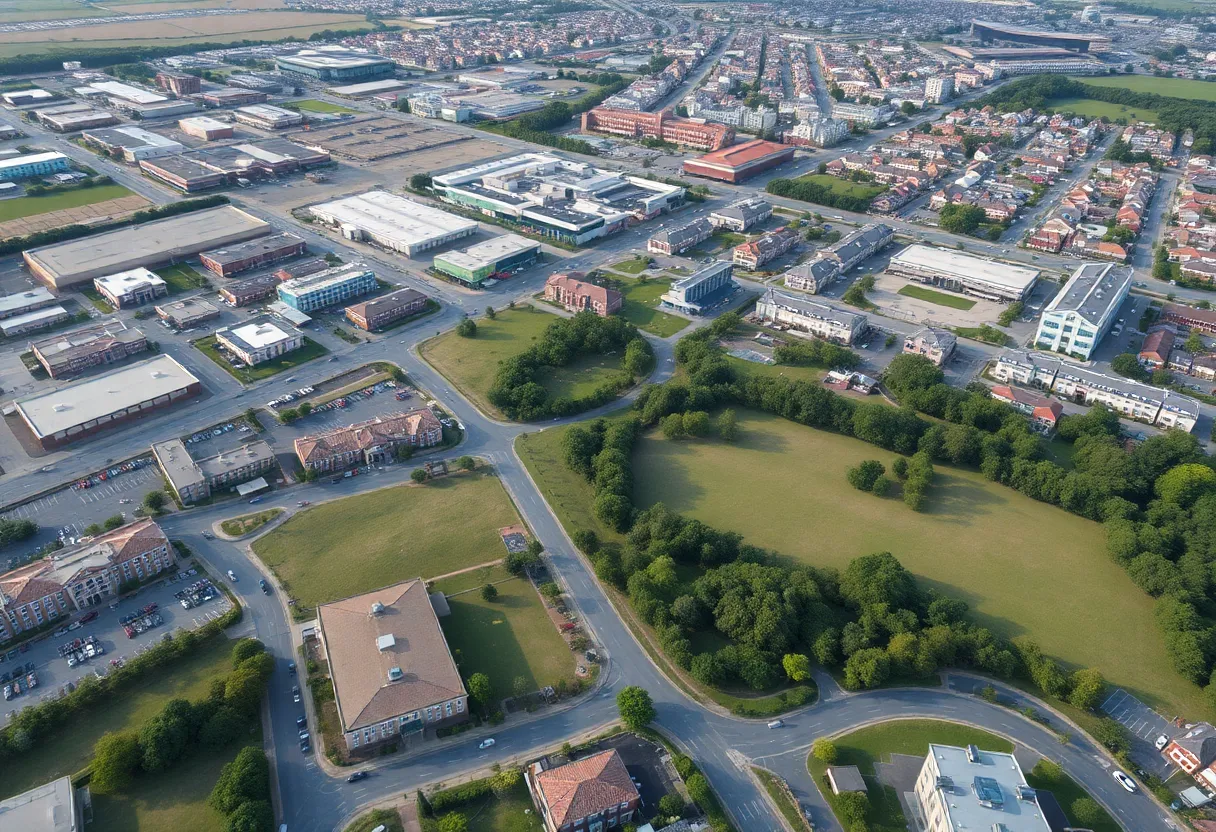News Summary
Pittsburgh recently hosted Republican state lawmakers at Astrobotic Technology to discuss the potential of artificial intelligence in Pennsylvania. The discussions focused on leveraging the city’s research universities and tech economy to establish Western Pennsylvania as a leader in AI. Experts emphasized the importance of collaboration between public and private sectors, as well as innovative energy solutions, to achieve this ambition. Additionally, the University of Pittsburgh is already making strides in healthcare AI, signaling significant growth potential for the state.
Pittsburgh Takes Center Stage in AI Development Discussions
Pittsburgh, a city known for its vibrant culture and technological advancements, recently played host to a dynamic gathering of Republican state lawmakers who met at Astrobotic Technology. The focus of the day was all about artificial intelligence and how Pennsylvania can tap into its full potential. The lawmakers came together to explore policies that could turn Western Pennsylvania into a national leader in the AI sector—exciting stuff, right?
Pittsburgh’s Unique Advantages
During the hearing, several experts shared what makes Pittsburgh a prime candidate for becoming an AI hub. The city boasts a wealth of research universities and industrial sites that serve as breeding grounds for innovation. With a thriving tech economy already in place, it’s clear that the foundations for success in AI are firmly established. This isn’t just guesswork; knowledgeable panelists laid out their plans for how to leverage these existing strengths into exciting opportunities for growth.
Collaboration is Key
One of the recurring themes in the discussion was the importance of working together. Both public and private sectors need to join forces to overcome challenges such as energy demands and attracting the right talent. Experts stressed that collaboration will be essential as the state navigates the evolving technological landscape. By pooling resources and knowledge, Pennsylvania can position itself at the forefront of the AI revolution.
The AI Transformation in Healthcare
Speaking of AI’s opportunities, Pennsylvania is already making strides in various sectors, particularly in health care and financial services. The University of Pittsburgh is leading the charge through its Computational Pathology & AI Center of Excellence. Established in 2024, this center has rolled out a suite of AI tools that are transforming how medical diagnostics and reporting are conducted. AI isn’t some futuristic concept; it’s a pressing reality that businesses and institutions need right now.
Financial Advantages
AI has also proven influential in finance. Local expert Christopher Martin shared insights on how it aids financial data processing and enhances pattern recognition for improved decision-making. The state’s leaders are not just sitting on their hands; they are actively embracing emerging technologies to accelerate growth and innovation.
Blueprint for the Future
The hearing participants also discussed strategies to create an environment that attracts local graduates and fosters an essential AI ecosystem. Exciting plans to revitalize downtown Pittsburgh were proposed, making it a more inviting place for both living and working. Pittsburgh’s tech corridor, known as AI Avenue, is already home to major players like Google and Duolingo, laying down an impressive blueprint for what could be achieved.
Energy Matters
Yet, it’s not all smooth sailing. The conversation shifted gears when energy supply came into play. Some lawmakers raised concerns about whether Pennsylvania’s energy policies would actually meet the infrastructure needs for AI initiatives. Senator Tracy Pennycuick brought portable nuclear reactors and natural gas into the discussion, advocating for innovative solutions for data centers. Given that Pennsylvania is the second-largest producer of natural gas in the U.S., leveraging these resources could be a win-win scenario.
The Future is Now
As kinetic energy levels rise around artificial intelligence, questions surrounding energy demands and their impacts on local infrastructure remain relevant. Southwestern Pennsylvania has seen a wave of interest in data centers, all powered by natural gas, which signals a significant commitment to the AI agenda. Nevertheless, this growth also brings about environmental concerns that critics caution against, particularly regarding the long-term job impacts for rural communities.
The Next Steps
Pennsylvania’s leaders are aware that immediate policy changes are crucial to encourage the growth of homegrown AI companies. With calls for streamlined natural gas infrastructure, there’s a palpable sense of urgency in the air. The stakes are high, and the potential is immense. For Pennsylvania, this is a golden opportunity to evolve into an AI powerhouse. The time for action is now—are we ready to embrace it?
Deeper Dive: News & Info About This Topic
- City & State PA: AI Not the Future, It’s Current
- WPXI: Pittsburgh AI Startups Make Forbes Top 50
- Post-Gazette: Pittsburgh and AI Advancements
- Wikipedia: Artificial Intelligence
- Google Search: Pennsylvania AI Development







